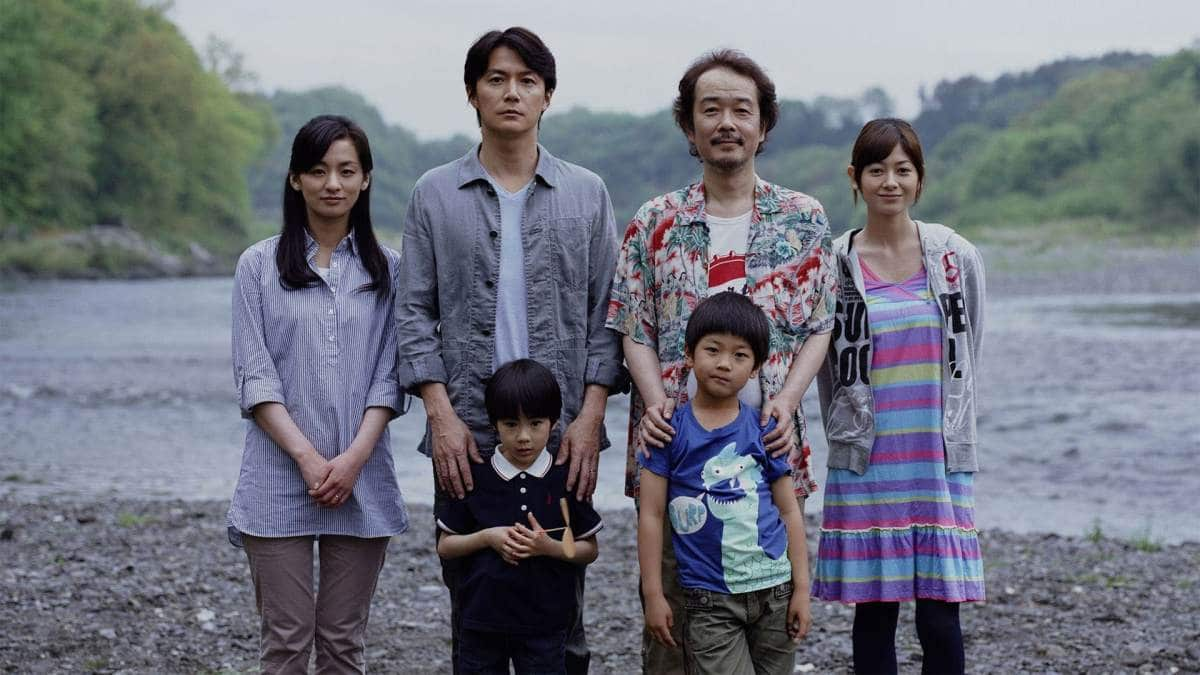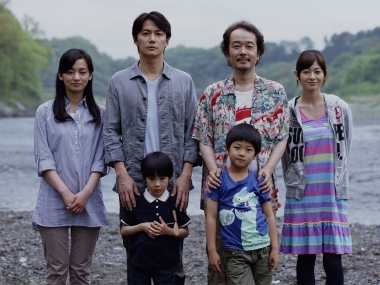This week, we’re going to discuss a film about fathers and sons, but what birthed it was director Hirokazu Kore-eda’s relationship with his daughter. He said, in a Screen Anarchy interview, that he actually didn’t have a lot of time to spend with her, probably due to the nature of his job. “While working on my last film, I Wish, I was away for about a month and when I came home after being away for that duration, she recognised me as a father but I could see that there is this ‘resetting’ in her mind as to who I was. She was three at the time. Then when I was leaving the next day, in the hallway to say good bye, she said, ‘Please, come again.’ It was shocking to me. Then it came to me that even though we are connected by blood, a father has a very different existence and relationship, compared to that of a mother to a child.” [caption id=“attachment_7371101” align=“alignnone” width=“825”] A still from Like Father, Like Son[/caption] The experience made Kore-eda wonder about the ties between parents and children. “Especially time. The time we spend together, compared to just blood ties - all these went into making this film.” He was talking about Like Father, Like Son (2013), which asks all these questions. Who is a parent? Is parenthood defined by nature or nurture? What if you discovered that the boy you’ve brought up and love with all your heart isn’t biologically yours? The premise is melodramatic. The cause of confusion is pure melodrama, too – a switch-up in the hospital, where two infants were swapped. But the deeply moving film is anything but melodrama. This is not to say melodramas cannot be moving – just that Kore-eda, as always, composes in a minor key. Like Father, Like Son is so delicate that the placid surface hardly gives away the fact that an angry sea roils beneath. The two sets of parents are from two sets of social classes. Ryōta Nonomiya is a successful architect, and his wife, Midori, is by now resigned to the fact that she is married to a workaholic. In the first scene, we see them in a posh school, being interviewed for a seat for their only son, Keita. Kore-eda frames the family in a row. They are all dressed formally, in black. They are all seated formally, backs erect. And there’s quite some distance between their chairs. Now, look at the other family. Yūdai Saiki, is a “mere” shopkeeper, but he and his wife, Yukari, share a far better bond with their children. Yūdai Saiki thinks that the first priority for a parent is to give their children time. Ryōta Nonomiya argues, “There are things at work that only I can do.” Yūdai Saiki replies, “But no one can play the role of the father other than you.” How does one “play the role” of a father? What if Ryōta Nonomiya is simply not built like Yūdai Saiki, who splashes around in the bathtub with his kids, not keeping an eye on the wall clock? There’s a devastating moment in that school-interview scene, where the principal asks: “Whom do you think Keita resembles most, his father, or his mother?” Ryōta Nonomiya says, “It’d seem to my wife, for her mild temper and her kindness to others.” When asked if the boy has any serious defect, Ryōta Nonomiya says, “Probably the same thing: he wants to do everything calmly. He doesn’t seem to mind losing. For me, his father, it is a little disappointing.” He’s laughing gently as he says this, but imagine his sense of… vindication, if you will, when he learns, later, that the boy isn’t his. No wonder the child isn’t Type A, like me. He is someone else’s son. [caption id=“attachment_7371131” align=“alignnone” width=“1200”]
 A promo still from the film[/caption] The mothers suffer, too. After a point, the two families decide to meet and spend time, getting to know each other better. While Yūdai Saiki (typically) plays with the kids and Ryōta Nonomiya (typically) goes off to make a call, Yukari confides to Midori: “I didn’t think he looked like us. But [my husband] did. A friend who’s very frank accused me of having had an affair. I found that very cruel. But I never imagined something like this.” After a few such meetings, Ryōta Nonomiya thinks that both boys are young enough to be re-swapped, that they will adapt to their new homes easily. But Midori’s mother makes the most sense. During the war, she says, a lot of children were separated from their parents, and other people adopted them. “What really matters is who brings you up.” It’s clear that Ryōta Nonomiya is the one who has to change, given that everyone else is on the other side. It’s not that they are happy with the situation. They’re just more realistic, and don’t think that blood means everything. But maybe it’s also the class difference. In the times of kings, for instance, blood was everything because the kingdom had to be passed on to an heir. If Ryōta Nonomiya was a shopkeeper like Yūdai Saiki, maybe he wouldn’t be so hung up about his bloodline. Maybe he’d be more… human. Like Father, Like Son makes us think about a lot of things, and it doesn’t cheat by using the emotional trauma of the two boys to make Ryōta Nonomiya a “villain”. He’s just a man trying to understand what it means to be a father. Baradwaj Rangan is Editor, Film Companion (South).
A promo still from the film[/caption] The mothers suffer, too. After a point, the two families decide to meet and spend time, getting to know each other better. While Yūdai Saiki (typically) plays with the kids and Ryōta Nonomiya (typically) goes off to make a call, Yukari confides to Midori: “I didn’t think he looked like us. But [my husband] did. A friend who’s very frank accused me of having had an affair. I found that very cruel. But I never imagined something like this.” After a few such meetings, Ryōta Nonomiya thinks that both boys are young enough to be re-swapped, that they will adapt to their new homes easily. But Midori’s mother makes the most sense. During the war, she says, a lot of children were separated from their parents, and other people adopted them. “What really matters is who brings you up.” It’s clear that Ryōta Nonomiya is the one who has to change, given that everyone else is on the other side. It’s not that they are happy with the situation. They’re just more realistic, and don’t think that blood means everything. But maybe it’s also the class difference. In the times of kings, for instance, blood was everything because the kingdom had to be passed on to an heir. If Ryōta Nonomiya was a shopkeeper like Yūdai Saiki, maybe he wouldn’t be so hung up about his bloodline. Maybe he’d be more… human. Like Father, Like Son makes us think about a lot of things, and it doesn’t cheat by using the emotional trauma of the two boys to make Ryōta Nonomiya a “villain”. He’s just a man trying to understand what it means to be a father. Baradwaj Rangan is Editor, Film Companion (South).
Who is a parent? Is parenthood defined by nature or nurture? Like Father, Like Son asks these questions and more
Advertisement
End of Article


)
)
)
)
)
)
)
)
)



